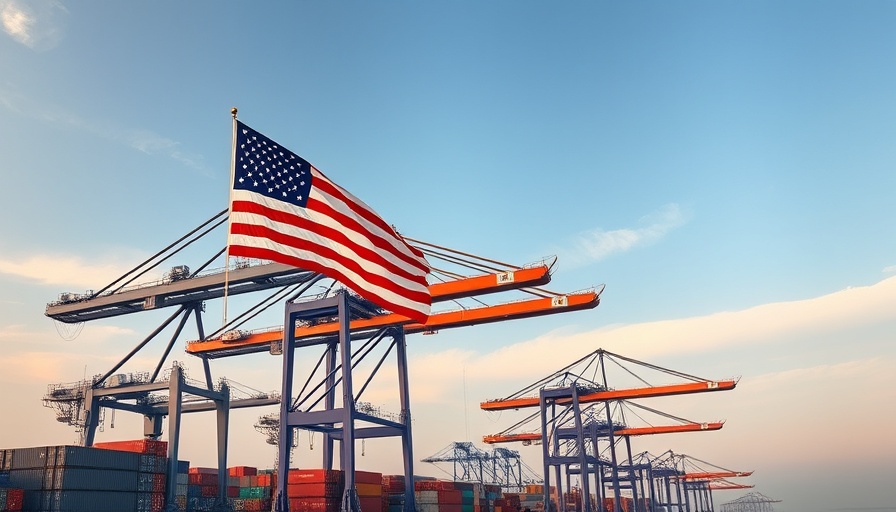
US Appeals Court Sides with Trump Over Tariffs
In a significant development for US trade policy, a federal appeals court has temporarily paused a lower court's block on proposed tariffs by former President Donald Trump. This decision comes at a pivotal moment when tariffs have become a hot-button issue in the realms of domestic and international business. The ramifications of this ruling could be profound, impacting everything from prices on everyday consumer goods to the competitiveness of American businesses.
Understanding the Implications for Bay Area Businesses
For the Bay Area, a hub for technology and entrepreneurial ventures, the reinstatement of these tariffs could create waves in various sectors. Small businesses and startups, particularly in Silicon Valley, may face increased costs for materials and products, which might compel them to pass those expenses onto consumers.
A recent survey indicated that many Bay Area entrepreneurs are concerned about the effects of rising tariffs on their operations. Business growth strategies could shift as companies reevaluate supply chains, looking for cost-effective alternatives amidst looming tariffs. This situation echoes the sentiments expressed during other tariff spats where businesses have reported significant challenges.
Corporate Responses: Adapting to Tariffs
As the trade landscape continues to shift, large corporations and startups alike are formulating strategies to adapt to potential tariff repercussions. According to industry analysts, companies might invest in automation and optimization of their supply chains to buffer against these costs. The tech industry, which thrives on innovation, must navigate these regulatory challenges with agility.
The need for resilience is more pressing than ever. Local businesses may need to pivot their offerings or explore mergers and acquisitions to strengthen their market position. In the face of tariffs, collaboration and partnership within the Bay Area startup ecosystem can foster unique solutions tailored for changing economic circumstances.
Future Projections: What Lies Ahead?
Looking ahead, economic forecasts suggest that the ongoing discussions and decisions surrounding tariffs will remain a focal point through the upcoming election cycle. As Trump gears up for a potential return to the presidency, his trade policies are likely to cause ripples in both the domestic and international business environments.
For Bay Area businesses, insight into these trends is crucial. With the startup ecosystem fostering innovation, companies may harness technological advancements as a countermeasure to tariff-induced price increases. However, the key will be in how effectively businesses can leverage these tools while maintaining their competitive edge.
Engaging with Policy: What Can Businesses Do?
It is essential for business leaders to stay informed about changes in business regulations regarding tariffs. Understanding the intricacies of how these tariffs affect consumer behavior is vital for strategic planning. Engaging in discussions around corporate governance and social responsibility can prepare companies for challenges posed not only by tariffs but also by changing consumer expectations.
Furthermore, networking events in the Bay Area can provide opportunities for startups and established firms to share insights and strategies regarding tariff adaptations. Learning from peer businesses can enhance resilience and ensure continuity in an unpredictable trade environment.
Conclusion: Embrace Change and Adapt
With the appeal of Trump's tariffs temporarily lifted, businesses within the Bay Area must remain vigilant and adaptive. Understanding the implications of such decisions is paramount for long-term success. By engaging with industry peers, keeping informed about market analysis, and embracing innovation, Bay Area businesses can navigate these challenges effectively.
As economic conditions evolve, staying connected and proactive will be crucial in shaping a sustainable business future.
 Add Row
Add Row  Add
Add 



Write A Comment